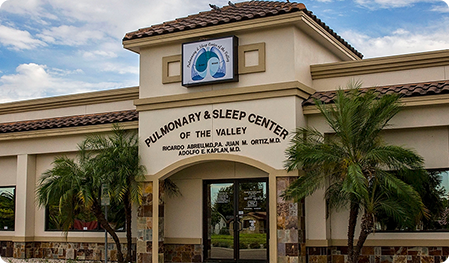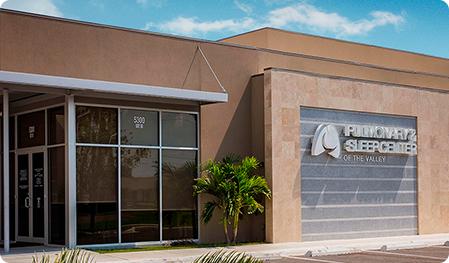At-Home or In-Clinic Sleep Assessments
The Pulmonary and Sleep Center of the Valley serves South Texas from our mid-Valley sleep center site in Weslaco and our upper-Valley site in McAllen. Both of our Center sites are accredited by the American Academy of Sleep Medicine as full-service sleep centers. If you suspect a sleep disorder is interfering with the quality of your sleep, you’ll need to have a Board Certified Sleep Specialist evaluate your sleep complaint. Our Center staff is highly skilled and credentialed in the provision of a detailed and valid assessment of your sleep complaint and de facto sleep.
The medical term for an overnight sleep study is a nocturnal polysomnogram (NPSG), which enables the most effective assessment and diagnosis of a broad range of sleep disorders. Our two fully accredited Center sites are equipped with much more than beds. Each laboratory assessment employs the latest technology enabling monitoring of your brain waves; airflow, breathing effort, and oxygen saturation; body, eye, and leg movements during sleep; snoring sounds; vocalizations and behaviors during sleep; and muscle tension. A trained sleep technologist monitors all of the aforementioned events during your sleep in the lab from outside your bedroom and occasionally must enter your private bedroom in order to replace/reposition sensors that have become displaced during body movements. The technologist also plays a major role in coordinating CPAP titration, parasomnia, and other complex laboratory assessments.
Not all studies require an overnight stay in the sleep lab. For some individuals, a sleep recording performed in the patient’s home can often be employed to record obstructive sleep events and snoring in adults and children. The latter home sleep monitoring system is small enough and easy enough for most people to use at home to enable a reliable gathering of data needed for an accurate diagnosis of your sleep breathing and/or snoring complaints.



